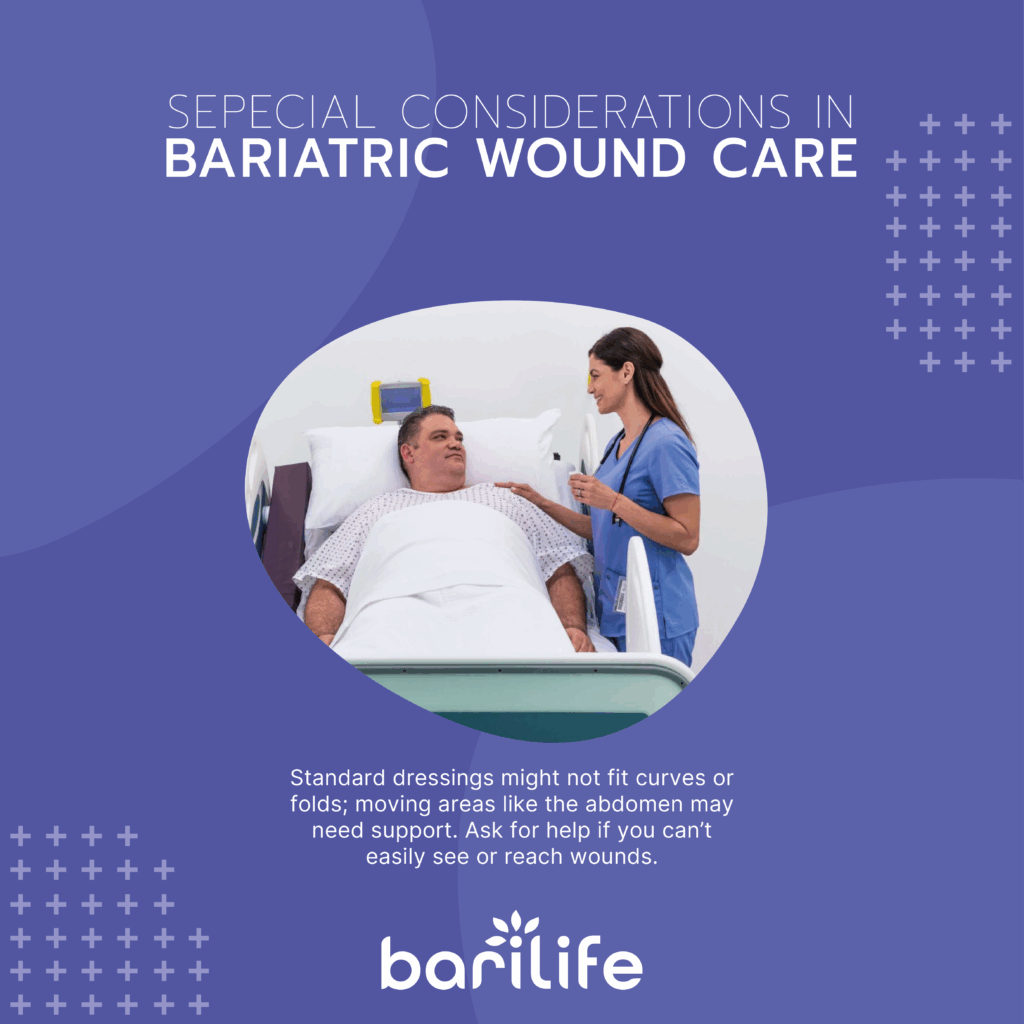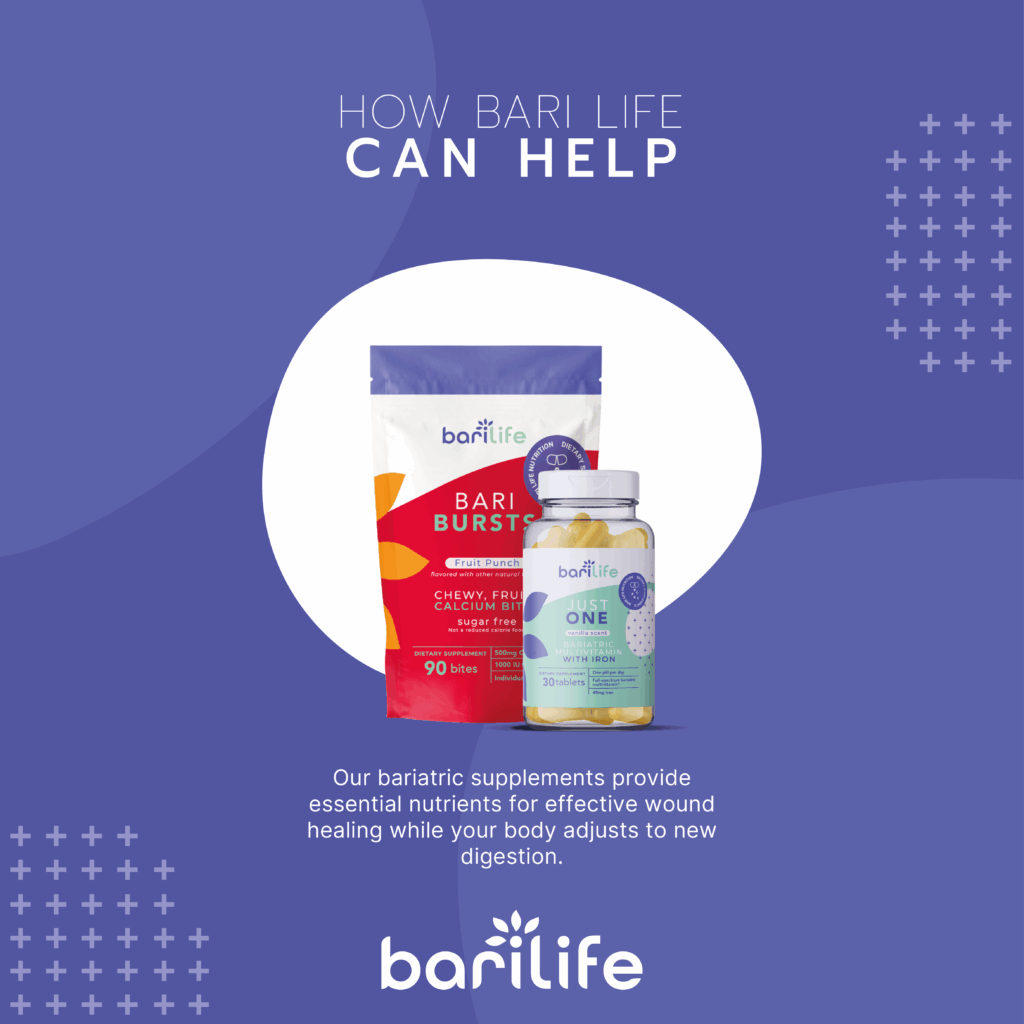Key Takeaways:
- Caring for your incisional wounds properly after bariatric surgery is important for healing and preventing complications
- People who have had bariatric surgery face unique wound-healing challenges that require special attention
- Following recommended wound care practices and seeking prompt medical help can significantly improve outcomes
When you have bariatric surgery, it’s important to know how to care for your surgical wounds in order to have a smooth recovery. This article will guide you through what you need to know to ensure proper healing and prevent complications after surgery.
What is Bariatric Surgery and Its Types?

Bariatric surgery refers to various surgical procedures designed to help with significant weight loss by changing how your digestive system works. These surgeries are typically recommended for people with severe obesity who haven't been able to lose weight through diet and exercise alone.
Before undergoing this type of surgery, it's important to consider the bariatric surgery pros and cons. While many experience improved health and weight loss, others may face complications or side effects, like nutrient deficiencies or changes in digestion.
There are several types of bariatric procedures, each working in slightly different ways.
Restrictive Procedures
Restrictive surgeries work by limiting how much food your stomach can hold, making you feel full after eating small amounts. Gastric sleeve surgery removes about 80% of your stomach, leaving a banana-shaped "sleeve." Adjustable gastric banding places an adjustable silicone band on the upper portion of your stomach to make a small pouch.
Malabsorptive Procedures
These surgeries change how your body absorbs calories and nutrients. The main example is biliopancreatic diversion with duodenal switch, which combines removing part of the stomach with rerouting the small intestine.
Combination Procedures
Roux-en-Y gastric bypass is a combination procedure that involves making a small stomach pouch and linking it directly to the middle part of the small intestine, reducing both food intake and calorie absorption. These surgeries also change gut hormones that affect hunger, fullness, and blood sugar control.
Understanding Bariatric Wounds
Bariatric wound care is especially important because healing can be more challenging after weight loss surgery.
Unique Healing Challenges
If you've lived with obesity, your body may face obstacles in normal wound healing. It’s common to experience reduced blood flow, as excess body tissue can limit circulation.
Skin tension is another issue—more tissue can create pulling forces on incisions, potentially straining stitches. Skin fold problems can also occur where skin meets and can trap moisture, leading to breakdown or infection.
Common Health Factors
Many people undergoing bariatric surgery have health conditions that impact wound healing. Diabetes can slow down healing and increase the risk of infections. High blood pressure may also affect blood flow to healing tissues.

Types of Wounds
Following bariatric surgery, you’ll need to care for your surgical incisions. These incisions are typically small, especially if the procedure was done laparoscopically, and are located on the abdomen. You may have anywhere from 3 to 7 incisions, depending on the surgery type and your body size.
Each bariatric surgery incisions is closed with dissolvable sutures, surgical glue, or staples and will need careful monitoring as they heal. In some cases, the visibility of bariatric surgery scars can be a concern for patients, but proper care and time usually reduce their appearance significantly.
Key Strategies for Bariatric Wound Care
Here’s what you need to know about caring for your surgical incisions.
Before Surgery Preparation
Proper preparation before surgery can significantly improve your healing outcomes. Focus on boosting your nutrition with adequate protein, vitamins, and minerals. You must also control your blood sugar if you have diabetes. Quit smoking, too, as tobacco can severely impair wound healing.
After Surgery Care
Follow your surgical team's instructions carefully. Keep incisions clean and dry by cleaning them as directed with mild soap and water. When changing the dressings, wash your hands properly and follow the exact steps you were taught.
Managing skin folds is particularly important in bariatric wound care. Keep these areas clean and dry, perhaps using a clean cloth between folds to absorb moisture. Stay as mobile as your doctor allows to improve circulation.
Special Considerations in Bariatric Wound Care
Your body is unique and requires personalized approaches to wound care. Standard dressings may not fit well over curved areas or skin folds. Wounds across moving areas like your abdomen may also need special support to prevent pulling. Don't hesitate to ask for help with caring for your wounds if you can't see or reach them easily.
Remember that dealing with wounds can affect how you feel about your body, but scars typically fade significantly over time. It's normal to worry about your wounds, and learning proper care techniques can help you feel more confident.

Role of Healthcare Providers in Bariatric Wound Management
You're not alone in managing your wounds. Your care team includes the surgeon who monitors your overall recovery, nurses who provide hands-on care, dietitians who ensure proper nutrition, and physical therapists who ensure you’re in a safe emotional state.
Your team should teach you exactly how to care for your specific wounds, demonstrate techniques, and discuss warning signs to watch for. Regular check-ups will allow them to monitor your healing and address any concerns.
When to Seek Medical Help
Don't hesitate to reach out if you experience any concerning symptoms. These include:
- Increasing pain rather than decreasing pain
- Redness spreading beyond the wound edges
- Pus or unusual drainage
- Separating wound edges
- Fever over 100.4°F (38°C)
- A foul smell from the wound.
These signs could indicate an infection or other bariatric surgery side effects that need prompt medical attention.
Conclusion
Proper bariatric wound care is a crucial component of your surgery journey. While healing can present unique challenges after weight loss surgery, following recommended care practices can significantly improve your outcomes. Remember that good nutrition, keeping wounds clean and dry, staying mobile, and promptly addressing concerns are key to faster healing.
Your surgical team has prepared you for this part of your journey, but don't hesitate to ask questions if you're unsure about any aspect of your wound care. With prompt attention and the right care, most surgical wounds heal well, which means you can focus on the positive health changes that come with your procedure.
How Bari Life Can Help
Filling all your nutritional needs is key to successful wound healing after bariatric surgery. This is where Bari Life can make a significant difference in your recovery. Our specialized bariatric vitamins and supplements provide the essential nutrients your body needs to heal wounds effectively, even as you adjust to your modified digestive system.
Proteins are especially crucial for wound healing, and our bariatric protein shakes and bariatric protein bars ensure you meet your daily requirements without overloading your smaller stomach. Whether you need bariatric multivitamins, a bariatric multivitamin with iron, or liquid bariatric vitamin options for easier absorption, Bari Life has you covered.
Our comprehensive product line also includes bariatric vitamins chewable for patients who prefer chewable formats, bariatric calcium chews to support bone health, and bariatric probiotic supplements to promote gut health during recovery. Additionally, we offer bariatric vitamins for hair loss, a common concern after surgery, to help maintain your hair strength and health.
To keep your recovery journey enjoyable and satisfying, don't forget to try our delicious bariatric snacks, which are formulated to meet your unique dietary needs without compromising taste or nutrition.

Don't compromise your healing process with inadequate nutrition. Visit Bari Life's website today to explore our complete line of bariatric-specific supplements made to support your recovery and help you achieve the best possible outcomes from your surgery.

Leave a Comment
Your email address will not be published.